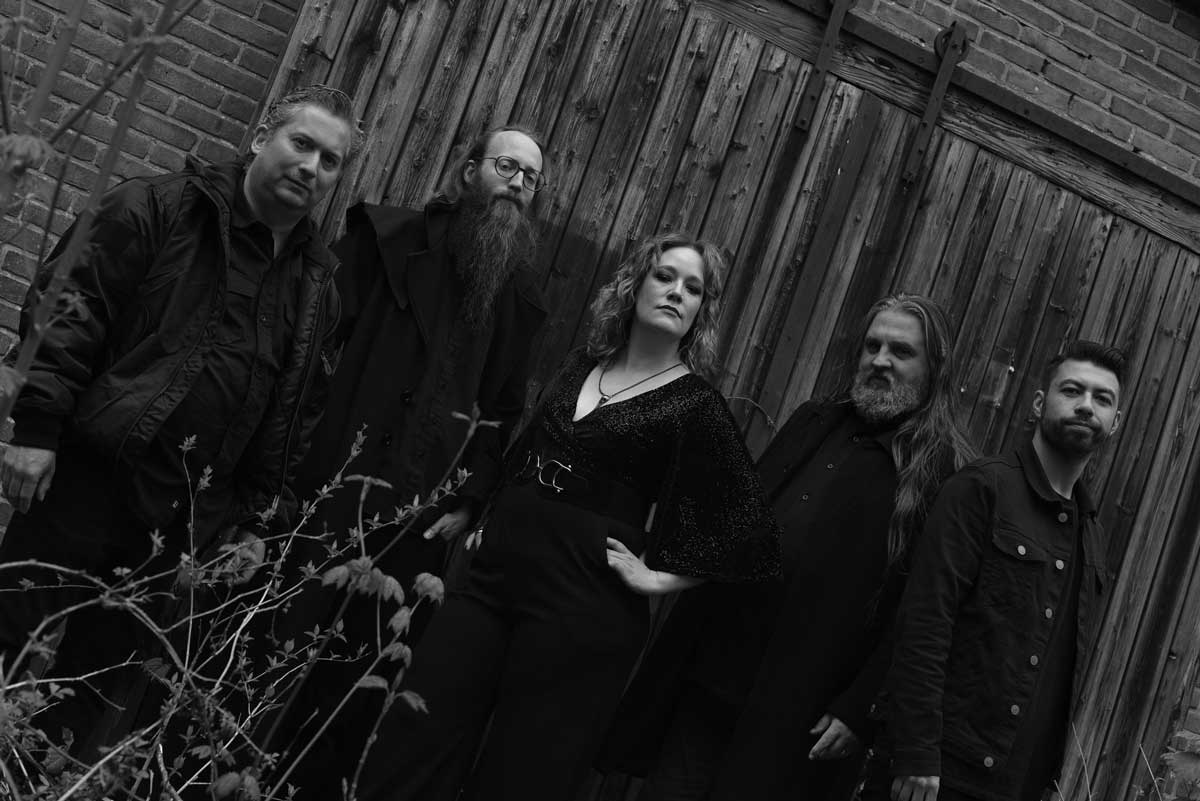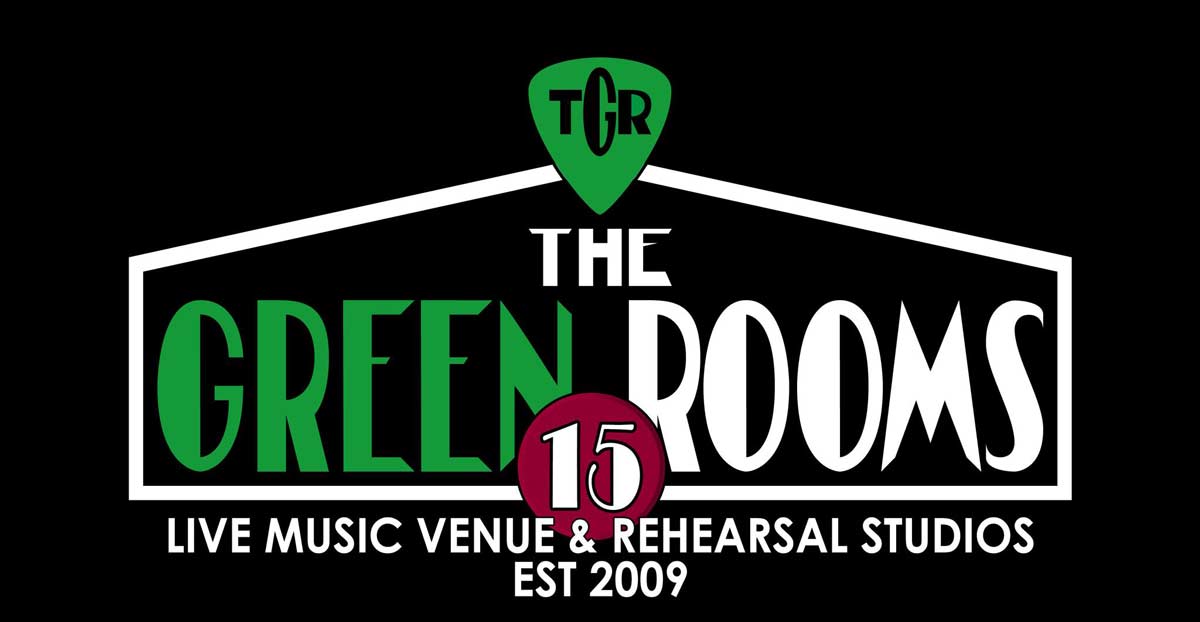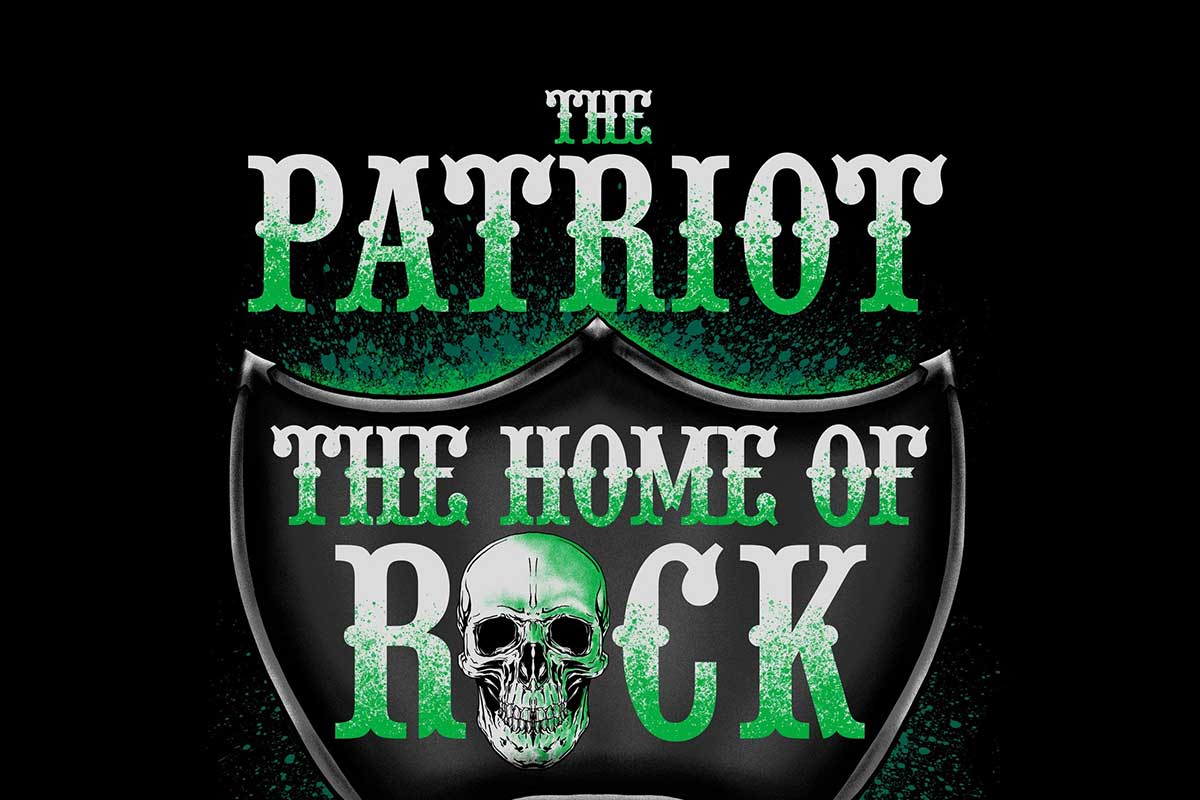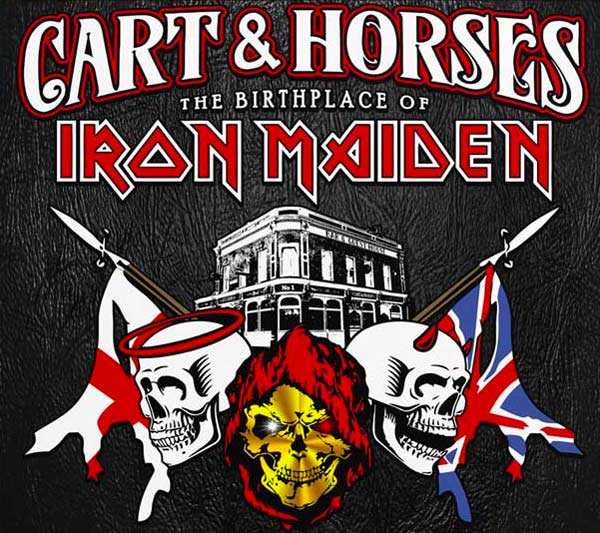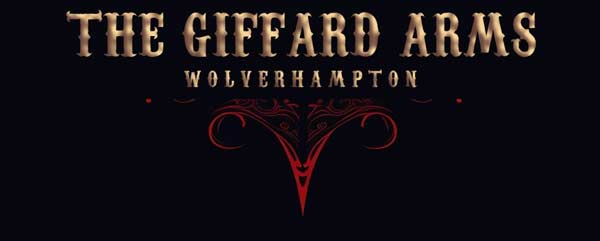Dutch doomsters Vetrar Draugurinn are closer in spirit to their Icelandic name than their warmer homeland, creating music full of heavy, threatening overtones but littered with atmospheric melodies.
Formed by ex Stream Of Passion man Eric Hazebroek and featuring current Autumn singer Marjan Welman on lead vocals, they have just released their independently funded sophomore album The Night Sky.
It’s a beautifully crafted follow up to their debut Hinterlands, an album full of heavy, memorable riffs, slow atmospheric build-ups and silky smooth melodic vocals, which take it into another league altogether; traditional Doom Metal this is not.
Songs like The Lonely and The Observer captivate but never quite let you know exactly where they’re going to go. When the band edge into epic territory on the brooding tribute to love which is Our Lady Of Perpetual Emptiness, or the towering soundscape of Reynisfjara, it feels like they’ve come home.

MetalTalk’s Ian Sutherland caught up with Eric and Marjan to find out more about Vetrar Draugurinn and The Night Sky.
MetalTalk: Thanks for talking to us. For anyone new to the band, can you say how you got together?
Eric: The actual start of the band was back in 2014. I played the guitar in Stream of Passion and had just put my band, The Saturnine, to rest. I came up with the idea to start a new project, more of a solo thing, with music that I couldn’t offer to SoP.
I listen to many different artists and styles, and many people know that my love for the more sombre and dark music is the most prominent. So I started writing songs and looking around for whom of my friends in the music business I could ask for their skills to add to this idea.
I made a selection based on skills and style, but also personality. I wanted to gather a group of people that were open to the vision and could relate to the main subject of the music. Easy going was also a criteria.
When early in 2016, Stream of Passion decided to call it a day, I called the group of people that formed Vetrar Draugurinn on the way home from the SoP meeting to ask them if they were up for transforming the project into a full-blown band. And so it happened that this unlikely group of Dutch musicians moved forward under an Icelandic name.
Marjan: Well, what Eric said, of course! It started as a side project for Eric, and he rang me up asking me if I would be interested in singing some songs for him. I’m always up for more singing. When the time came for Eric to turn it into an actual band, I was more than happy to accept!
Where did the band name come from? Do you get fed up explaining what it means, or do you think it works as an attention-getter?
Eric: [Laughs] Yes, the old subject of the Icelandic name for a Dutch band. Back in the beginning, I was looking for a name that would stand out, and most of all was not taken. For some reason, I ended up with The Winter Ghost as a moniker that portrayed the idea behind the music the best.
I started to look into the translation of that into several different languages to see what would enhance the mysterious and haunting feel even more. Icelandic stood out. I always was a little in love with Iceland. It’s a place that stands out, totally alien to the rest of the world. It seemed suitable.
Icelandic is a hard language to grasp, and after a few versions, with the help of a friend who lives there, we ended up with Vetrar Draugurinn.
Marjan: Eric already explained, but I’d like to add that this matter always makes me laugh. Don’t get me wrong, I love the name, but the puzzled looks I get are very amusing. When people ask what the name of my band is, I always have the urge to ask: Do you have a pen on you?
How would you describe the band’s music? Are there specific influences?
Eric: I fully understand the need for a clear genre name to describe music, yet I think it would be tough to pinpoint the exact genre we are in even if I wanted to. Yes, it’s doomy and melancholic, but not full-on Doom Metal.
Keywords that come to mind are melodic, diverse, dynamic, melancholic, heavy at times, fragile at other times. We are not in it to colour within lines. We are in it to create sincere and heartfelt music.
My influences range from bands like Paradise Lost, Katatonia, Ghost Brigade, The Third And The Mortal, through Alice In Chains, Leprous, God Is An Astronaut, Crowbar to even artists like Fields Of The Nephilim, Eivor, Olafur Arnalds, and Alain Johannes. I’m open to any music that causes a stir in my equilibrium.
Marjan: Tough one. I find this one difficult to answer because we all bring our unique flavour to the band. I personally don’t do genres. Well, just two. Like and dislike. Or no likey when I’m feeling extra eloquent! All of us have different influences, and I think that shows when you listen carefully.

What is the songwriting process in the band?
Eric: I am the main songwriter. When I come up with a viable idea, a workable concept, I have the tendency to write several new songs in a rather short period. I have access to recording software at home, and together with some drum midi, I tend to create a complete song arrangement.
But the drums are to give everyone an idea of the feel I was thinking of. Jim is always entirely free to change the drum parts if he sees the need to. That goes for everybody in the band.
I am always open to fresh interpretations of the music I have written. I record the guitars, add some drum midi, and maybe even some special FX and/or keyboards. When the structure is sound, I usually head over to Marjan’s place on the other side of the country, and we try to come up with some interesting vocal lines that complement the song’s concept.
I do write all the lyrics, but I try to explain the thought behind it to give Marjan an insight and the chance to translate it to her personal feelings before we start creating the vocal melodies. Most of the time, it’s just me nodding in agreement when she comes up with these vocal lines and melodies/harmonies!
Marjan: Haha, thanks, Eric. I listen to Eric’s songs and the thoughts behind them and try to let lines come up without too much pressure. The latter is very hard to accomplish because I suffer from perfectionism. I can shut down when I get too much into my head. I’ve come a long way since that first rehearsal, where I couldn’t sing anything because I was afraid of letting the others down. Eric nodded an awful lot before I came out of my shell.
Many bands with Doom Metal influences use harsh vocals or growls. Why have you chosen to use mostly Marjan’s gorgeous melodic style?
Eric: It might not have been such a conscious decision when I think about it now. But I do believe Marjan’s voice needs the centre stage. Plus, harsh vocals are not part of the message we try to bring across, I think.
You two are both smiley people who are great fun to be around. Where does all this darkness come from?
Eric: To be honest, there’s no real answer to that question for me. It’s always been there. I keep saying I have total control over it, which is mostly true, but it is always hiding in the background.
I experience some emotions quite intensely, which was even more concentrated when my father died in 2016. The outside might not show it too much, but on the inside, it’s a whirlwind. Thankfully I can let go of some of it through writing songs and lyrics.
Marjan: For me personally, that darkness and anxiety come naturally. That fun, smiley side is just the other side of a double-edged sword to keep things in balance, maybe. Or a coping skill even, but let’s not go there.
You released your debut album Hinterlands in 2019. How do you feel about that album now, and how do you think follow up The Night Sky compares?
Eric: Hinterlands was clearly a debut album, with songs gathered over a longer period of time and when the band’s style wasn’t completely set in stone. It does mean that it is a good view of all the different aspects that are Vetrar Draugurinn, though.
The Night Sky is way more coherent. Written in a shorter time and with songs stylistically closer to each other. The Night Sky is heavier and darker. We evolved.
Thomas (guitars) has written the instrumental track The Fear of Letting Go, which fit in perfectly with the general flow and feel of the album. It’s still clear that Hinterlands and The Night Sky are made by the same band, but The Night Sky is our proof of the fact that we write music for ourselves without any preplanned marketing ideas of genre restrictions.
The music’s main goal is to express and to console. We are not in it to please everyone but to be that understanding listening ear to the sorrow we all encounter in our lives. We’re breaking free from expectations. The Night Sky is the first step, I guess.
Marjan: Exactly what Eric said. I think you can hear we evolved. We’ve grown into our style more. We have clear favourites on Hinterlands, and I think if you listen to The Night Sky, you will hear which those are.
Is there any theme to the lyrics on The Night Sky?
Eric: I harshly stated on Facebook, without any form of context, that it’s about death and loneliness. I think that statement actually still stands strong. There are songs about death, dying and loss, as well as being alone and disconnected.
It sounds rather serious and heavy, but I’m always trying to create the light at the end of the tunnel in it as well, or the beauty of the things that were. There’s enough room for interpretation to make it your own as a listener, to translate it to someone’s own situation.
Marjan: The beautiful thing about music is that every listener has their own interpretation of a song. Associations vary from person to person, even when some lyrics are more clear than others. That’s the best part. I know what I think the song is about, but I love to hear other people’s opinions or guesses.

There are some fabulous song titles on the album as well as fabulous songs. What are Our Lady Of Perpetual Emptiness and As I Drift On An Ocean Towards A Different Shore about?
Eric: Well, Our Lady Of Perpetual Emptiness is about coping with the absence of someone you hold dear. The title transforms that emotion into an almost religious experience—a plea to a fictitious Saint, one that controls all the melancholy.
Our Lady Of Perpetual Emptiness both causes emotional hurt as well as comfort. I also mentioned her in the title track.
The song itself is rather atmospheric and balladesque. Marjan is the main focus of this song. The musical blanket is there to paint the scene a bit. It is reverbed and hazy. As I Drift On An Ocean Towards A Distant Shore is about the actual point of leaving this mortal coil.
There are many descriptions of what people experience and see. One of them is that the place between life and death is a vast, dark ocean.
The lyrics talk about leaving one shore, life, and travelling to another, the afterlife. It sort of describes the realisation that the most important part of the life side is the love you had for people, a thing a lot of people don’t grasp until the very end. You don’t know what you’ve got till they’re gone.
There are some male vocals on Lansdown Hill. Who is guesting on that track?
Eric: The guest vocals on Lansdown Hill are done by our dear friend and singer/guitar player from the Australian Dark Metal band The Eternal, Mark Kelson. I’ve known Mark for years as we kept in contact through social media after meeting many years ago in Tilburg.
Two years ago, we had the pleasure of sharing the stage for two shows when The Eternal made the journey over to promote their album. Mark is a cool guy, a great musician, and has this very deep, dark voice if he wants to, which was quite suitable for our song.
I guess Lansdown Hill is a sort of tribute to the goth rock things I used to listen to. The arrangements are a bit less complicated. Mark’s contribution to it finished it off perfectly.
Do you have any favourite songs on the album to play or sing and why?
Eric: It changes, but the one song that keeps coming back to me is definitely Reynisfjara. The huge atmosphere and the chorus worked out really well. The longest song on the album, but that’s what it needed. It’s a journey.
Marjan: Exactly the same for me!
Do you have plans to play live soon, on tour, or maybe doing another live stream event?
Eric: We’re always looking for opportunities to play live. We have a handful of gigs planned or in the works, but not enough for our liking! Doing a tour is very hard at the moment for full independent bands like we are. We will definitely try to get the most out of it.
What does the immediate future look like for Vetrar Draugurinn?
Eric: Good question! I’ve been so busy getting this album out into the world that the thought of what comes after hasn’t really crossed my mind yet. I did have four days locked up in a cabin in the woods with a guitar and recording equipment last week, so maybe I’ll plot a new EP or start writing for album number three!
The current state of the world, in all its pandemic splendour, makes thinking ahead rather difficult. But I keep my thoughts on my love for music and try to steer away from trouble.
The Night Sky is out now and can be purchased from the band via their website.


